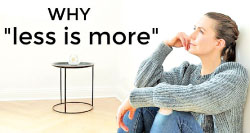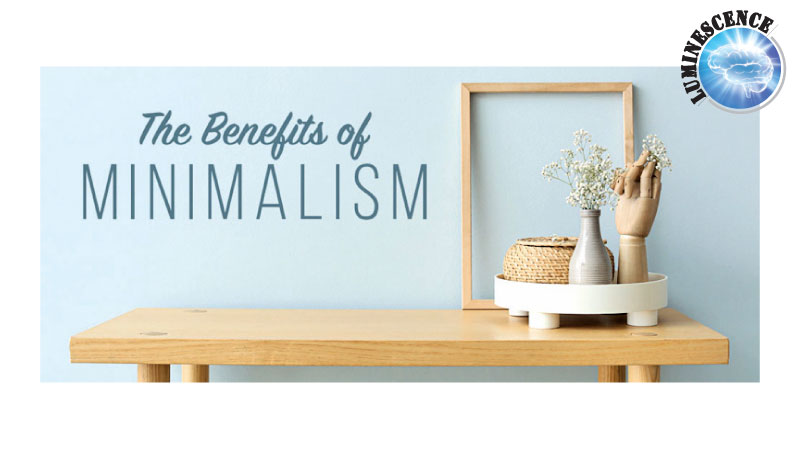 In a world overwhelmed by consumerism, excess, and constant digital distractions, the minimalist lifestyle has emerged as a refreshing and transformative alternative. Rooted in the philosophy of “less is more,” minimalism is not just about decluttering physical spaces—it is a way of life that encourages mindfulness, intentionality, and true fulfillment.
In a world overwhelmed by consumerism, excess, and constant digital distractions, the minimalist lifestyle has emerged as a refreshing and transformative alternative. Rooted in the philosophy of “less is more,” minimalism is not just about decluttering physical spaces—it is a way of life that encourages mindfulness, intentionality, and true fulfillment.
Minimalism is gaining popularity as people seek freedom from material burdens, stress, and the endless pursuit of possessions. Many find themselves caught in a cycle of accumulating things, chasing trends, and being bombarded by digital noise, only to realize that these things do not bring lasting happiness. Minimalism offers an escape, providing clarity, peace, and a renewed sense of purpose. It is not about deprivation but about making conscious choices that lead to greater freedom, clarity, and well-being. By prioritizing what truly adds value and eliminating what does not, minimalism creates space for what truly matters.
Modern society often equates success with material wealth, conditioning people to believe that buying more will make them happier. However, accumulating possessions requires maintenance, storage, and money, often leading to stress rather than joy. The more we own, the more we have to manage, clean, and organize, which can become overwhelming. Minimalism helps individuals break free from this cycle, encouraging them to appreciate what they already have rather than constantly longing for more.
A cluttered environment often leads to a cluttered mind. Research shows that excess possessions contribute to increased stress and anxiety. By simplifying their surroundings, minimalists create an environment that fosters tranquility, focus, and mental clarity. A well-organized space promotes a sense of control and peace, reducing the mental burden caused by excessive belongings.
Minimalism encourages mindfulness—the practice of being fully present and engaged in the moment. When we are not constantly preoccupied with acquiring or managing possessions, we can devote more time and energy to passions, relationships, and personal growth. This intentional approach to life enhances emotional well-being, leading to greater contentment.
Minimalism also has significant financial benefits. By prioritizing quality over quantity, minimalists invest in durable, meaningful items rather than spending mindlessly on fleeting trends. Cutting unnecessary expenses allows them to save money for experiences, investments, or long-term goals. Many fall into the trap of overspending, often relying on credit to maintain a materialistic lifestyle. Minimalism encourages conscious spending; helping people differentiate between needs and wants, ultimately leading to financial security and independence.
Beyond physical possessions, minimalism extends to mental and digital clutter. In an age of constant notifications, social media distractions, and information overload, digital minimalism is increasingly important. Unsubscribing from unnecessary emails, limiting screen time, and crating social media feeds can significantly enhance productivity and focus. When distractions are minimized, individuals can concentrate on what truly matters—be it their career, passions, or relationships. A clean and organized workspace fosters creativity and efficiency, leading to higher productivity and job satisfaction.
Minimalism is also closely tied to sustainability. By adopting a more mindful approach to consumption, minimalists reduce waste, minimize their carbon footprint, and make ethical choices. Owning fewer possessions means less demand for mass production, which helps conserve natural resources and reduce pollution. Many minimalists embrace eco-friendly practices such as using reusable products, choosing sustainable brands, and shopping mindfully. This lifestyle shift not only benefits the individual but also contributes to a healthier planet.
For those looking to adopt a minimalist lifestyle, the transition does not have to be drastic. Small, intentional steps can lead to profound changes. Start by evaluating your belongings and letting go of items that no longer serve a meaningful purpose.
Ask yourself, “Does this add value to my life?” If the answer is no, consider donating, recycling, or selling it. Instead of chasing trends, invest in timeless, high-quality items that are durable and functional. Whether it’s clothing, furniture, or gadgets, focus on longevity rather than impulse purchases.
 Simplifying routines—such as meal planning, digital detuning, and focusing on essential tasks—can create a more balanced and stress-free life. Before making a purchase, pause and reflect.
Simplifying routines—such as meal planning, digital detuning, and focusing on essential tasks—can create a more balanced and stress-free life. Before making a purchase, pause and reflect.
Do you genuinely need it? Will it add value to your life? Practising conscious consumerism prevents unnecessary accumulation. Minimalism also encourages gratitude. By shifting focus from material desires to experiences, relationships, and self-growth, individuals find deeper satisfaction in life.




